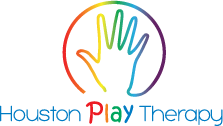Why Play therapy
According to the Association of Play Therapy:
Child play therapy is a way of being with the child that honors their unique developmental level and looks for ways of helping in the “language” of the child – play. Licensed mental health professionals therapeutically use play to help their clients to better express themselves and resolve their problems.
Play Therapy works best when a safe relationship is created between the therapist and client, one in which the latter may freely and naturally express both what pleases and bothers them.
Play Therapy is used as a primary intervention or as supportive therapy for:
Behavioral problems, such as anger management, grief and loss, divorce and abandonment, and crisis and trauma.
Behavioral disorders, such as anxiety, depression, attention deficit hyperactivity (ADHD), autism or pervasive developmental, academic and social developmental, physical and learning disabilities, and conduct disorders.
Research suggests Play Therapy is an effective mental health approach, regardless of age, gender, or the nature of the problem, and works best when a parent, family member, or caretaker is actively involved in the treatment process. For more information on play therapy including research citations, please visit:
Danielle Tschirhart, M.Ed., LPC-S, RPT-S is a Professional Member of the Association of Play Therapy.

